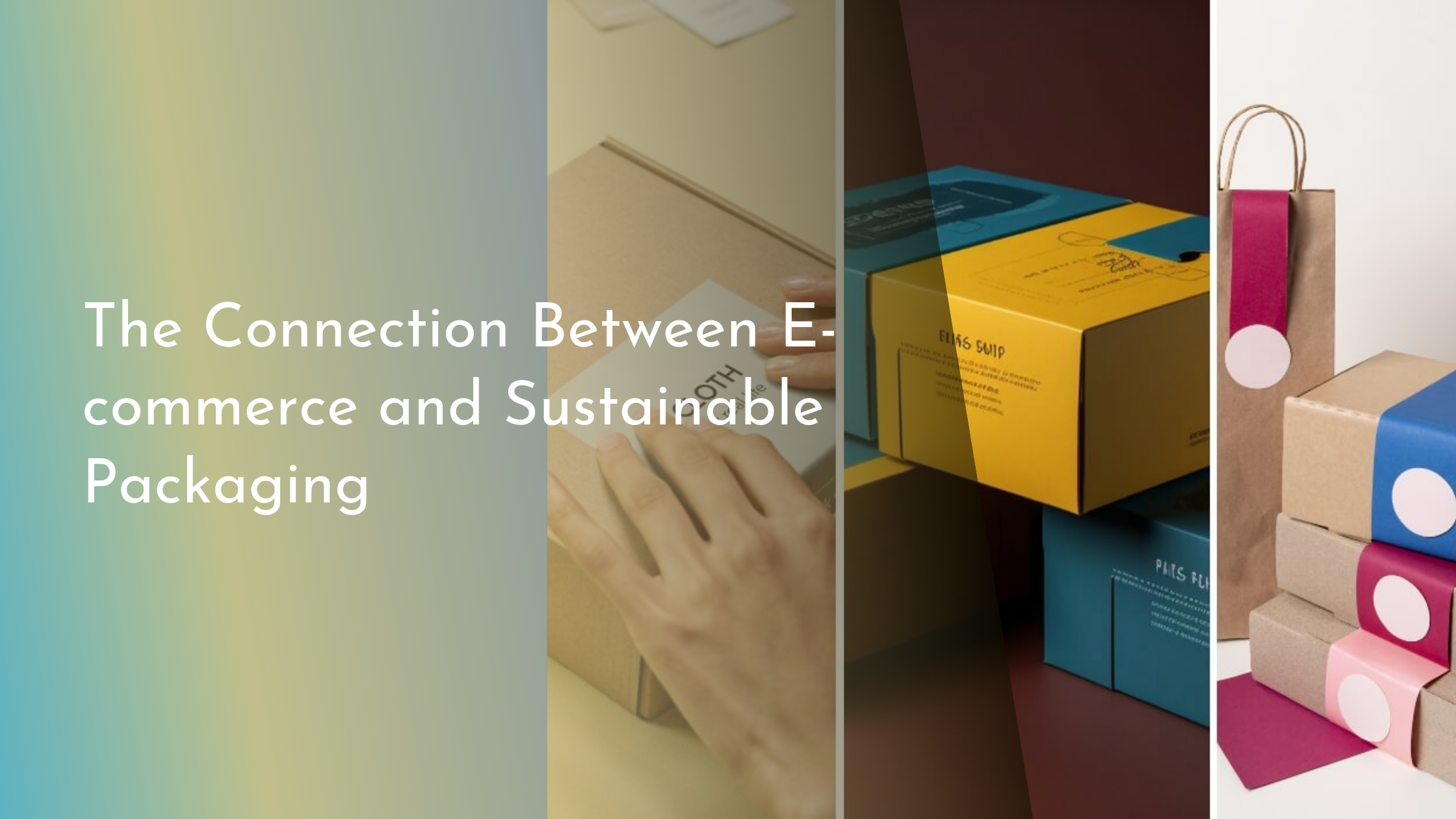The Connection Between E-commerce and Sustainable Packaging
E-commerce has revolutionized the way we shop, offering unparalleled convenience and accessibility. However, as online shopping continues to grow, so does its environmental footprint, particularly through packaging waste. Fortunately, there is a growing movement towards sustainable packaging, aiming to minimize the environmental impact of e-commerce. This article explores the connection between e-commerce and sustainable packaging, highlighting its importance, innovations, and benefits for businesses. Let’s embark on a journey toward a greener future for e-commerce.
Understanding E-commerce’s Environmental Impact
The exponential growth of e-commerce has led to a significant increase in packaging waste, resulting in environmental concerns. With the convenience of ordering at the click of a button, comes the reality of billions of packages being shipped worldwide. Each package often involves multiple layers of materials including plastic, cardboard, and foam. This excessive packaging contributes to waste accumulation in landfills and oceans, posing a threat to wildlife and ecosystems. Additionally, the carbon emissions from transportation and delivery further exacerbate the environmental impact, making it crucial to address these issues.
Moreover, the traditional linear economy approach to packaging, which involves a ‘take, make, dispose’ model, is unsustainable in the long run. As consumers become more environmentally conscious, there is increasing pressure on e-commerce businesses to adopt sustainable practices. This shift not only helps in reducing the carbon footprint but also aligns with the global goals of minimizing environmental damage. Understanding the scope of e-commerce’s environmental impact is the first step towards adopting sustainable packaging solutions, thereby ensuring a positive impact on the planet.
Innovations in Sustainable Packaging Solutions
Innovations in sustainable packaging are paving the way for more eco-friendly e-commerce practices. One such innovation is the use of biodegradable materials, which break down naturally without leaving harmful residues. Companies are increasingly turning to plant-based packaging made from materials like cornstarch, mushroom roots, and seaweed. These materials not only reduce reliance on plastics but also decompose within a short period, minimizing their impact on the environment. By adopting biodegradable options, e-commerce companies are contributing to a circular economy, where waste is minimized, and resources are reused.
Another promising innovation is reducing packaging size and volume, which involves designing packages that fit the product dimensions more precisely. This not only reduces material usage but also optimizes space during shipping, thereby reducing fuel consumption and emissions. Companies are also exploring reusable packaging options, allowing customers to return packaging for reuse in future shipments. These innovations not only demonstrate a commitment to sustainability but reflect a broader industry shift towards more responsible packaging practices.
Benefits of Sustainable Packaging for Businesses
Adopting sustainable packaging offers numerous benefits for e-commerce businesses. Firstly, it enhances brand reputation by showcasing a commitment to environmental responsibility, which is increasingly valued by consumers. As awareness of environmental issues grows, customers are more likely to support brands that prioritize sustainability. By aligning with these values, businesses can strengthen customer loyalty and attract eco-conscious consumers, ultimately driving growth and success.
Furthermore, sustainable packaging can lead to cost savings in the long term. While the initial investment may be higher, the reduction in material usage and transportation costs can offset these expenses. Optimized packaging can lead to fewer returns due to damages, improving efficiency and reducing waste. Additionally, companies can benefit from incentives and subsidies that governments and organizations offer for adopting environmentally friendly practices. Overall, sustainable packaging is a strategic investment that offers both financial and ethical rewards, positioning businesses as leaders in the shift towards sustainability.
The connection between e-commerce and sustainable packaging is a testament to the growing awareness of the need for environmentally responsible practices. By embracing sustainable packaging solutions, e-commerce businesses can significantly reduce their environmental impact, aligning with consumer values and global sustainability goals. The innovations and benefits outlined in this article represent promising steps towards a greener future. As the industry evolves, the commitment to sustainable practices will not only protect the planet but also drive business success, ensuring a win-win outcome for all stakeholders involved. Let us collectively strive for a future where e-commerce thrives in harmony with nature.

